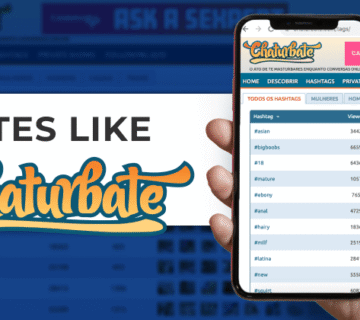Bumble has grown into one of the world’s most trusted dating apps, yet the question lingers across forums, blogs, and group chats: Does Bumble send fake messages or notifications? Is the app creating fake profiles, using bots to simulate interest, or triggering misleading alerts to keep users engaged? This comprehensive, 100% human-written guide examines what’s real, what’s rumor, and how to identify scam risks in your Bumble experience—with original insights, the latest anti-scam features, and advice directly from authoritative resources.
Table of Contents
-
The Rumors: Why People Suspect Fake Alerts and Profiles
-
What Does Bumble Say? Official Policy on Bots and Fake Profiles
-
Does Bumble Send Fake Messages or Notifications?
-
The Reality: Fake Profiles, Bots, and Scams on Bumble
-
How to Tell If a Message or Match Is Fake
-
What About Misleading Notifications?
-
Bumble’s AI Deception Detector and Security Measures
-
User Stories: Real Experiences with Suspected Fake Alerts
-
Staying Safe: Tips For Avoiding Scams and Bots
The Rumors: Why People Suspect Fake Alerts and Profiles
Bumble users have long debated whether the app deliberately sends out “fake” notifications—such as alerts about likes, admirers, or matches that don’t seem to exist once you log in. Some feel this is a subtle nudge to re-engage lapsed users, while others point to suspicious profiles or canned messages and wonder if Bumble’s user base is as genuine as advertised.
What Does Bumble Say? Official Policy on Bots and Fake Profiles
**Bumble’s official position is clear—**they do not create fake profiles or send fabricated messages to users as a way to simulate engagement. Instead, the platform is actively investing in security features to remove bots and fake accounts before they reach the user.
Bumble’s commitment to authenticity includes:
-
AI-powered photo verification
-
Machine learning to detect bots and scams
-
Dedicated human moderation teams
-
Features like Deception Detector™ to weed out fake accounts
Does Bumble Send Fake Messages or Notifications?
No, Bumble does not send fake messages or stage conversations to keep you swiping. However, users CAN receive misleading or confusing notifications:
-
Digest emails or app alerts about likes or admirers: These may reference activity that is no longer visible (e.g., someone unmatched, expired, or blocked).
-
Promotional or engagement notifications: Sometimes, you might get a message prompting you to check the app for pending likes or matches. When you log in, you may not find anything new. This is usually due to changes in match preferences, unmatching, or the timing of activity, rather than deliberate deception.
Bumble does NOT generate message conversations using fake accounts or bots of its own.
The Reality: Fake Profiles, Bots, and Scams on Bumble
While Bumble itself isn’t behind fake accounts, bots and scammers are a reality on almost all dating platforms. They:
-
Create profiles with stolen or AI-generated images
-
Use automation to message many users at once
-
Try to lure users to third-party apps or phishing websites
-
Commonly ask for money, gifts, or request to continue conversations away from Bumble
Bumble has acknowledged these are risks and has implemented many features to block them.
Key Red Flags for Fake Profiles:
-
Just one or two very polished or generic photos
-
Very short, generic bios
-
Rapid requests to move off-app (to WhatsApp, email, etc.)
-
Overly flattering, sexual, or robotic initial messages
-
Coordinated responses or requests for gifts, money, or personal info
How to Tell If a Message or Match Is Fake
-
Verify with Bumble’s photo tool. You can request anyone you match with to take a verification selfie.
-
Test with an odd question or request. Bots struggle with non-sequiturs, e.g., “Spell ‘potato’ for me!”
-
Look for refusal to video/voice chat. Genuine users are usually willing to verify they’re real.
-
Be wary of repetitive or unrelated answers. Automated bots will go off-script quickly.
-
Never trust links to outside sites from new matches.
What About Misleading Notifications?
Some users report receiving a notification like “You have a new match!” or “You have an Admirer!” only to find nothing new in their inbox. Here’s why:
-
Timing delays: You may receive a bundled notification about likes or admirers—a user might have unmatched or changed filters by the time you check.
-
Digest format: Bumble may combine several activities into one email or alert, making it seem like new likes or matches have appeared, even if you’ve swiped left, expired, or lost access to them.
-
Quick unmatching: Sometimes, a match occurs right before a user unmatches or blocks you, making the notification outdated.
There’s no evidence that Bumble is intentionally misleading users; the confusion often results from timing, user actions, or app policies.
Bumble’s AI Deception Detector and Security Measures
In 2024, Bumble publicly rolled out Deception Detector™, an AI-driven tool designed to block spam, scams, and fake profiles from ever appearing in users’ feeds.
-
Over 95% of detected scam/fake accounts are automatically blocked.
-
User reports of scams and fake profiles have dropped significantly since AI adoption.
-
Photo verification, human moderation, and education resources round out an ongoing campaign for trust and safety, especially important for women in online dating.
User Stories: Real Experiences with Suspected Fake Alerts
Across Reddit and social media, users share stories of:
-
“Phantom matches” that vanish when the app is opened
-
Notifications about admirers or activity not reflected inside Bumble
-
Encounters with bots or profiles that seem too slick to be true
Community consensus is that most confusing notifications are NOT deliberate fakes, but stem from the dynamic nature of dating app swipes/unmatches, scam attempts, or algorithms bundling activity.
Staying Safe: Tips For Avoiding Scams and Bots
-
Insist on photo or video verification before sharing personal info or meeting up
-
Never send money or gifts to new matches
-
Be cautious of matches pushing for off-app communication quickly
-
Report suspicious profiles or messages using the in-app reporting tool
-
Regularly review Bumble’s list of red flags and safety features
Conclusion
Bumble does NOT send fake messages or notifications intentionally—the platform is actively fighting against scams and bots with powerful AI moderation, verification features, and human oversight. Occasional confusing or outdated notifications usually result from real users unmatching, timing lags, or the natural churn of dating app activity. To stay safest, always practice caution with matches, insist on verification, and leverage Bumble’s robust security systems and reporting tools.








[…] Read More: Does Bumble Send Fake Messages or Notifications? The Definitive 2025 Guide […]